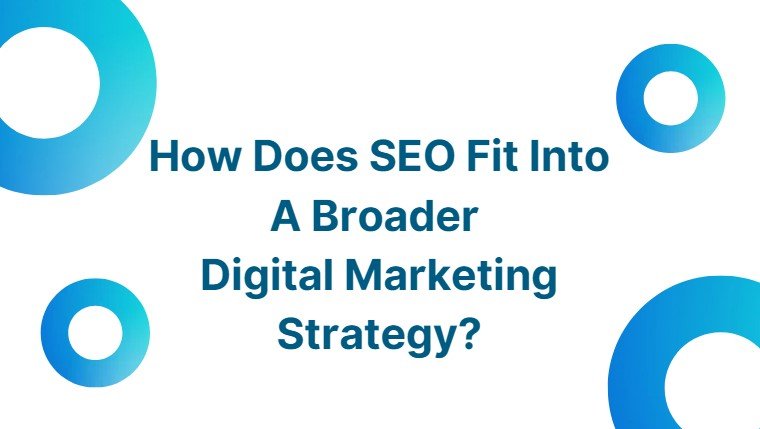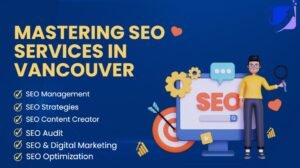In the rapidly evolving digital landscape, businesses are constantly seeking effective strategies to enhance their online presence, engage with their audience, and drive conversions. Search Engine Optimization (SEO) has emerged as a crucial component of digital marketing strategies, enabling businesses to improve their visibility on search engines, attract organic traffic, and build brand credibility. However, SEO does not exist in isolation; it is an integral part of a broader digital marketing strategy that encompasses various channels and tactics. This article delves into how SEO fits into a comprehensive digital marketing strategy and the benefits of integrating SEO with other marketing efforts.
Understanding SEO and Its Core Components
SEO is the process of optimizing a website to rank higher in search engine results pages (SERPs) for relevant keywords. The primary goal of SEO is to increase organic traffic to a website by improving its visibility on search engines like Google, Bing, and Yahoo. SEO can be divided into three main components:
- On-Page SEO: This involves optimizing individual web pages to rank higher and earn more relevant traffic. Key elements include keyword optimization, meta tags, headings, URL structure, internal linking, and content quality.
- Off-Page SEO: Off-page SEO focuses on activities outside of your website that influence your search engine rankings. This includes backlink building, social media marketing, influencer outreach, and guest blogging.
- Technical SEO: This aspect of SEO deals with the technical aspects of a website that affect its performance and visibility in search engines. Key elements include site speed, mobile-friendliness, secure connections (HTTPS), and proper indexing by search engines.
SEO as the Foundation of Digital Marketing
SEO serves as the foundation of a robust digital marketing strategy. Here’s how:
1. Enhancing Website Visibility and Traffic
SEO helps improve a website’s visibility on search engines, making it easier for potential customers to find the business. Higher visibility leads to increased organic traffic, which is crucial for generating leads and conversions. Unlike paid advertising, which provides immediate but temporary results, SEO offers long-term benefits by continually driving traffic to your site.
2. Building Credibility and Trust
Websites that rank high in SERPs are often perceived as more credible and trustworthy by users. By adhering to search engine guidelines and providing valuable content, businesses can establish their authority in their industry. This trust translates into higher click-through rates, lower bounce rates, and increased customer loyalty.
3. Cost-Effective Marketing
SEO is a cost-effective digital marketing strategy compared to pay-per-click (PPC) advertising and other paid campaigns. While SEO requires an initial investment in terms of time and resources, it delivers sustainable results over time without the continuous cost associated with paid ads. This makes it an attractive option for businesses with limited marketing budgets.
Integrating SEO with Other Digital Marketing Channels
To maximize the effectiveness of a digital marketing strategy, businesses must integrate SEO with other marketing channels. Here’s how SEO complements various aspects of digital marketing:
1. Content Marketing
Content marketing and SEO go hand in hand. High-quality, relevant content is essential for both engaging your audience and improving your search engine rankings. By conducting keyword research, businesses can identify the terms and phrases their target audience is searching for and create content around these topics. This not only helps in ranking higher on SERPs but also addresses the needs and interests of potential customers.
- Blog Posts: Regularly publishing blog posts on topics relevant to your industry can attract organic traffic and establish your authority. Incorporate SEO best practices, such as keyword optimization, internal linking, and engaging headlines.
- Infographics and Videos: Visual content like infographics and videos can boost engagement and shareability. Optimize these assets with relevant keywords, alt texts, and descriptions to improve their visibility in search results.
2. Social Media Marketing
Social media platforms are powerful tools for amplifying your content and driving traffic to your website. While social media signals do not directly impact search engine rankings, there is a symbiotic relationship between SEO and social media marketing.
- Content Distribution: Share your SEO-optimized content on social media channels to increase its reach and attract more visitors to your site. Engaging content is likely to be shared, increasing its visibility and potential to earn backlinks.
- Brand Awareness: A strong social media presence can enhance brand awareness and reputation, indirectly influencing your SEO efforts. A recognized brand is more likely to be clicked on in search results, improving your click-through rates.
3. Pay-Per-Click (PPC) Advertising
While SEO focuses on organic traffic, PPC advertising drives paid traffic to your website. Integrating SEO and PPC can provide valuable insights and enhance overall digital marketing performance.
- Keyword Research: Use data from your PPC campaigns to identify high-performing keywords that can be incorporated into your SEO strategy. Conversely, use SEO data to inform your PPC keyword targeting.
- Landing Page Optimization: Both SEO and PPC benefit from well-optimized landing pages. Ensure that your landing pages are relevant, user-friendly, and contain targeted keywords to improve both organic and paid search performance.
4. Email Marketing
Email marketing is an effective way to nurture leads and keep your audience engaged. Integrating SEO with email marketing can enhance the overall effectiveness of both strategies.
- Content Promotion: Use email campaigns to promote your SEO-optimized content, driving traffic to your website. Include links to blog posts, articles, and other valuable resources in your emails.
- List Segmentation: Segment your email list based on user behavior and preferences. This allows you to send targeted content that resonates with specific segments, increasing engagement and driving traffic to relevant pages on your site.
5. Influencer Marketing
Influencer marketing involves partnering with influencers to promote your brand and products. This strategy can boost your SEO efforts by generating high-quality backlinks and increasing brand visibility.
- Guest Blogging: Collaborate with influencers to create guest posts for their blogs. Ensure these posts include backlinks to your website to improve your domain authority and search engine rankings.
- Social Media Mentions: Influencers can share your content with their followers on social media, driving traffic to your website and increasing the likelihood of earning backlinks.
Measuring SEO Success in a Broader Digital Marketing Strategy
To determine the effectiveness of your SEO efforts within your broader digital marketing strategy, it’s essential to track and analyze key performance indicators (KPIs). Some important KPIs to monitor include:
- Organic Traffic: Measure the number of visitors coming to your site from organic search results. An increase in organic traffic indicates that your SEO efforts are paying off.
- Keyword Rankings: Track the rankings of your target keywords over time. Improved rankings suggest that your content and optimization strategies are effective.
- Conversion Rate: Analyze the percentage of visitors who complete desired actions on your site, such as making a purchase or filling out a contact form. Higher conversion rates indicate that your SEO efforts are attracting relevant, high-quality traffic.
- Bounce Rate: Monitor the percentage of visitors who leave your site after viewing only one page. A high bounce rate may indicate that your content is not engaging or relevant to your audience.
- Backlinks: Track the number and quality of backlinks to your site. High-quality backlinks from reputable sources improve your domain authority and search engine rankings.
Conclusion
SEO is a fundamental component of a successful digital marketing strategy. By improving website visibility, driving organic traffic, and building credibility, SEO lays the groundwork for other marketing efforts. When integrated with content marketing, social media, PPC advertising, email marketing, and influencer marketing, SEO amplifies the effectiveness of your overall digital marketing strategy.
Businesses that invest in a holistic approach to digital marketing, with SEO at its core, are better positioned to achieve sustainable growth, increase brand visibility, and drive long-term success. By continuously analyzing performance and adapting strategies, companies can stay ahead in the competitive digital landscape and reap the full benefits of their SEO and digital marketing efforts.



